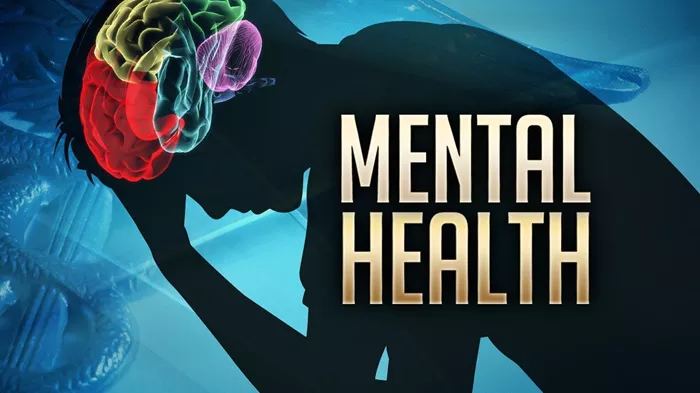Mental health issues are a pressing concern globally, influencing millions of lives and impacting various facets of society. Among the spectrum of mental health conditions, some stand out due to their profound and potentially devastating effects. Determining the “most dangerous” mental health issue can be challenging, as it depends on various factors, including severity, impact on daily functioning, and potential for self-harm or harm to others. This article aims to delve into what constitutes the most dangerous mental health issue, exploring various conditions, their implications, and the underlying reasons why some are considered more perilous than others.
Overview of Mental Health Issues
Mental health encompasses a range of conditions that affect mood, thinking, and behavior. These conditions can broadly be categorized into several groups:
1. Mood Disorders: Includes depression, bipolar disorder, and cyclothymic disorder.
2. Anxiety Disorders: Includes generalized anxiety disorder, panic disorder, and social anxiety disorder.
3. Psychotic Disorders: Includes schizophrenia and delusional disorder.
4. Personality Disorders: Includes borderline personality disorder, antisocial personality disorder, and narcissistic personality disorder.
5. Eating Disorders: Includes anorexia nervosa, bulimia nervosa, and binge-eating disorder.
6. Neurodevelopmental Disorders: Includes autism spectrum disorder and attention-deficit/hyperactivity disorder (ADHD).
Each category encompasses a range of specific conditions, each with its own symptoms, causes, and potential treatments. However, when discussing the “most dangerous” mental health issue, we often focus on conditions with high risks of severe consequences, such as self-harm, suicide, or violence towards others.
Criteria for Determining Danger
Several criteria can be used to assess the danger posed by a mental health issue:
1. Risk of Suicide or Self-Harm: Conditions that significantly increase the risk of self-harm or suicide are considered highly dangerous.
2. Potential for Harm to Others: Mental health conditions that can lead to aggressive behavior or violence towards others also warrant serious concern.
3. Impact on Daily Functioning: Conditions that severely impair an individual’s ability to function in daily life, including maintaining employment and relationships, are critically important.
4. Chronicity and Treatment Resistance: Conditions that are long-lasting and resistant to treatment can be particularly dangerous due to their persistent impact on an individual’s life.
See Also: What Mental Illness Makes You Want to Kill?
Analysis of Dangerous Mental Health Issues
To provide a comprehensive view, let us examine some of the most dangerous mental health issues based on the aforementioned criteria.
1. Schizophrenia
Schizophrenia is a chronic and severe mental health disorder characterized by delusions, hallucinations, disorganized thinking, and impaired functioning. It affects approximately 1% of the global population.
Dangerous Aspects:
Psychosis: Individuals with schizophrenia often experience psychotic episodes, including hallucinations (e.g., hearing voices) and delusions (e.g., beliefs that are not grounded in reality). These symptoms can lead to risky behaviors and impair judgment.
Increased Risk of Suicide: People with schizophrenia have a higher risk of suicide compared to the general population. Approximately 5-10% of individuals with schizophrenia die by suicide.
Impairment in Functioning: Schizophrenia severely impacts daily functioning, making it difficult for individuals to maintain employment, engage in social relationships, or live independently.
Treatment Challenges: Despite available treatments, including antipsychotic medications and psychotherapy, many individuals with schizophrenia struggle with treatment adherence and management of symptoms. This chronic nature of the disorder and the difficulties in treatment make it particularly dangerous.
2. Bipolar Disorder
Bipolar disorder is characterized by extreme mood swings that include emotional highs (mania or hypomania) and lows (depression). It affects about 2.8% of adults in the United States.
Dangerous Aspects:
Risk of Suicide: Individuals with bipolar disorder are at high risk of suicide, especially during depressive episodes. Studies indicate that around 15% of people with bipolar disorder die by suicide.
Manic Episodes: During manic phases, individuals may engage in reckless behaviors such as excessive spending, risky sexual activity, or substance abuse. These behaviors can have severe consequences.
Functional Impairment: The intense mood swings and symptoms of bipolar disorder can disrupt daily functioning, impacting relationships, employment, and overall quality of life.
Treatment Challenges: Managing bipolar disorder requires a combination of mood stabilizers, antipsychotic medications, and psychotherapy. However, maintaining stability can be challenging due to the episodic nature of the disorder and the potential for medication non-compliance.
3. Borderline Personality Disorder (BPD)
Borderline Personality Disorder is characterized by intense emotional instability, impulsive behavior, unstable relationships, and a distorted self-image. It affects approximately 1.6% of the population.
Dangerous Aspects:
Self-Harm and Suicide Risk: Individuals with BPD often engage in self-harming behaviors and have a high risk of suicide. Around 10% of individuals with BPD die by suicide.
Impulsivity and Aggression: BPD is associated with impulsive behaviors and frequent episodes of anger or aggression, which can lead to dangerous situations and relational conflicts.
Functional Impairment: The pervasive instability in mood and self-image can severely impair interpersonal relationships and occupational functioning.
Treatment Challenges: Effective treatment for BPD often includes dialectical behavior therapy (DBT) and other therapeutic approaches, but the disorder’s complexity and the severity of symptoms can make treatment challenging.
4. Post-Traumatic Stress Disorder (PTSD)
PTSD develops after exposure to a traumatic event and is characterized by symptoms such as flashbacks, nightmares, severe anxiety, and intrusive thoughts. It affects approximately 7-8% of people at some point in their lives.
Dangerous Aspects:
Risk of Suicide: PTSD is associated with a higher risk of suicide, particularly in individuals who experience severe symptoms or have co-occurring mental health issues.
Impaired Functioning: PTSD can significantly impact daily life, including the ability to work, maintain relationships, and engage in normal activities.
Co-occurring Disorders: PTSD is often accompanied by other mental health conditions, such as depression or substance abuse, which can exacerbate the overall danger and impact.
Treatment Challenges: Although effective treatments such as cognitive-behavioral therapy (CBT) and exposure therapy are available, PTSD can be difficult to treat, especially in individuals with complex trauma or additional mental health issues.
Conclusion
Identifying the most dangerous mental health issue involves considering various factors, including the risk of self-harm or harm to others, the impact on daily functioning, and the challenges associated with treatment. Schizophrenia, bipolar disorder, borderline personality disorder, and post-traumatic stress disorder each present significant dangers due to their potential for severe consequences and the complexities of managing these conditions. Ultimately, the designation of “most dangerous” may vary depending on individual experiences and the context in which the mental health issue manifests. Comprehensive and compassionate approaches to diagnosis, treatment, and support are essential for addressing these challenging conditions and mitigating their risks. Continued research, public education, and advancements in mental health care are crucial for improving outcomes and enhancing the quality of life for those affected by these serious mental health issues.
[inline_related_posts title=”You Might Be Interested In” title_align=”left” style=”list” number=”6″ align=”none” ids=”8778,7290,2325″ by=”categories” orderby=”rand” order=”DESC” hide_thumb=”no” thumb_right=”no” views=”no” date=”yes” grid_columns=”2″ post_type=”” tax=””]

































